Politics
/ArcaMax
Shutdown pain spreads at 1 month, touching tens of millions
The U.S. government shutdown becomes painfully real for tens of millions Americans this weekend as it hit the one-month mark with food aid disrupted, cuts to child care kicking in, and health insurance premiums spiking.
The shutdown is expected to break the 35-day record set in President Donald Trump’s first term next week, after the Senate ...Read more
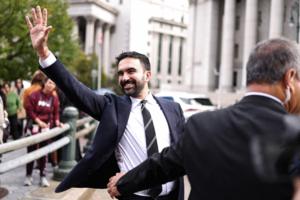
Commentary: Four votes on Tuesday that will shape the nation (or at least the narrative)
Tuesday is election day, and, as usual, the pundits are breathless, the predictions are dubious and the consultants are already counting their retainers. But make no mistake: Off-year elections matter. Tuesday’s results will shape the political landscape for 2026 and beyond.
Let’s start in California, where Gov. Gavin Newsom has decided to ...Read more

Valley Forge Military College aims to join Trump's anti-'woke' compact amid uncertain future
PHILADELPHIA — Amid a financial tailspin and organizational upheaval, leaders at Valley Forge Military College have expressed interest in joining President Donald Trump’s plan for conservative colleges that would provide preferential access to federal education funding.
Trump’s proposed Compact for Academic Excellence in Higher Education ...Read more
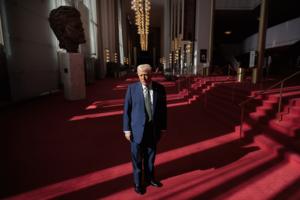
Under Trump, ticket sales plummet for Kennedy Center performances
President Donald Trump's favorite musical is, famously, "Les Misérables," but few fans have been storming the barricades to get into the Kennedy Center this season.
The Washington Post reports that sales for the current season of music, dance and theater at the Washington, D.C., cultural institution have declined dramatically since the ...Read more
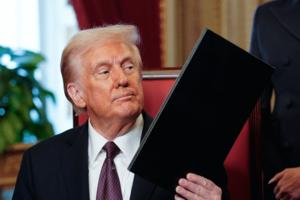
Trump calls for Senate 'nuclear option' to end government shutdown
WASHINGTON — President Donald Trump late Thursday called for Senate Republicans to end the partial government shutdown by using the “nuclear option” to eliminate the legislative filibuster.
Trump posted on his Truth Social platform that Democrats “want Trillions of Dollars to be taken from our Healthcare System and given to others, who ...Read more
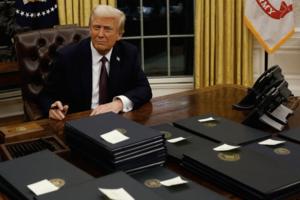
Lawmakers spar over possible Trump third term as president leaves door open
WASHINGTON — Some Democratic senators say Donald Trump’s recent acknowledgment of constitutional challenges to seeking a third term should end any notion that he could run again.
But some of the president’s Republican allies aren’t ruling it out. And one conservative group has begun building a road map toward a legally uncertain third ...Read more
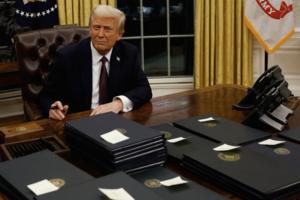
Trump demands Senate scrap filibuster rule to end shutdown
President Donald Trump is demanding the Senate to “go nuclear” and scrap the filibuster rule so Republicans could unilaterally end the government shutdown.
Calling the power play a “Trump card,” the president pushed GOP senators to end the longstanding rule requiring 60 votes for most legislation, generally requiring some support from ...Read more
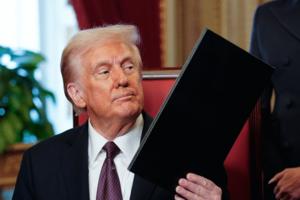
Trump calls for Senate 'nuclear option' to end government shutdown
WASHINGTON — President Donald Trump late Thursday called for Senate Republicans to end the partial government shutdown by using the so-called “nuclear option” to eliminate the legislative filibuster.
Trump posted on his Truth Social platform that Democrats “want Trillions of Dollars to be taken from our Healthcare System and given to ...Read more
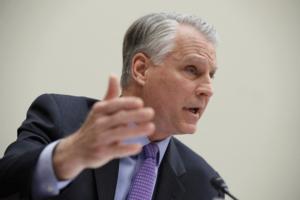
Life after Congress: Indiana's Tim Roemer's focus turns to preserving democracy
WASHINGTON — There are many fronts in the battle to preserve democracy, and former Rep. Tim Roemer is in the middle of the action on all of them.
The Indiana Democrat, who served in the House from 1991 to 2003, has spent the past decade as a senior adviser and co-chair of Issue One’s ReFormers Caucus, a bipartisan group of about 200 former ...Read more
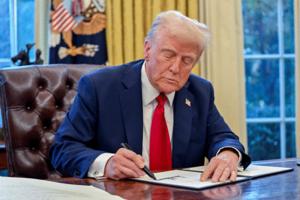
Trump says GOP should ditch filibuster over shutdown stalemate
WASHINGTON — President Donald Trump called on Senate Republicans to vote to get rid of the filibuster in the upper chamber, amid a government shutdown that has lasted nearly a month.
“BECAUSE OF THE FACT THAT THE DEMOCRATS HAVE GONE STONE COLD “CRAZY,” THE CHOICE IS CLEAR — INITIATE THE “NUCLEAR OPTION,” GET RID OF THE FILIBUSTER ...Read more
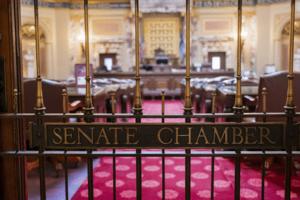
Special elections to decide whether DFL, GOP control Minnesota Senate
MINNEAPOLIS — Two special elections next Tuesday to fill vacancies in the Minnesota Senate will determine the balance of power in the narrowly divided chamber, where the Democratic-Farmer-Labor Party holds a one-seat majority.
In what is seen as the more competitive of the two races, Republican candidate Dwight Dorau faces state Rep. Amanda ...Read more
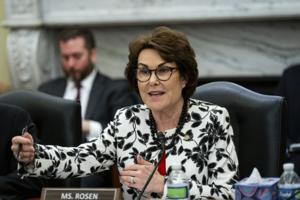
What does Trump's call for renewed nuclear testing mean for Nevada?
President Donald Trump’s call to resume U.S. nuclear weapons testing prompted quick condemnation from some Nevada congressional Democrats.
It’s unclear exactly what directive Trump gave in a Wednesday post on his social media platform and whether he meant that a nuclear warhead should be detonated in the testing. But any changes to the ...Read more
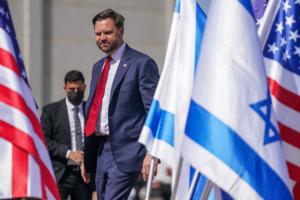
As shutdown stretches on, Congress' efforts to pay federal employees stall
Like the shutdown itself, efforts to provide pay for federal workers so far have been stuck in the political crossfire between Republicans and Democrats. And the Senate left for the weekend Thursday, meaning nothing will be resolved until at the earliest next week.
The one potential bright spot: Pay for military personnel is due Friday, and ...Read more
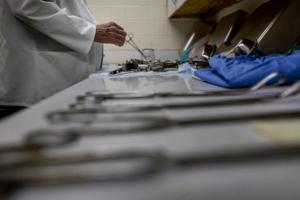
Alaska Supreme Court weighs reinstating law that would require abortions be provided only by licensed physicians
ANCHORAGE, Alaska — The Alaska Supreme Court is considering whether to overturn a lower court ruling that removed restrictions on the kind of providers who can perform abortions in the state.
A Superior Court judge last year struck down a law that required abortions to be performed only by a doctor licensed by the State Medical Board. The ...Read more
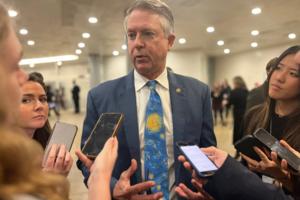
Senators have outline for drug price program, but vote is elusive
WASHINGTON — Lawmakers impatient with the lack of progress on a key health care issue — the long-debated need for changes to what’s known as the 340B drug pricing program — say they are closing in on legislation aimed at what they say are abuses in the program.
The program, established in 1992, requires drug companies to sell deeply ...Read more
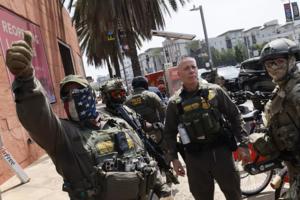
What makes a rebellion? Trump's troop deployment may hinge on one man's dictionary
At the center of the sprawling legal battle over President Donald Trump's domestic military deployments is a single word: rebellion.
To justify sending the National Guard to Los Angeles and other cities over the outcry of local leaders, the Trump administration has cited an obscure and little-used law empowering presidents to federalize ...Read more
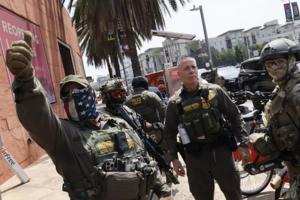
What makes a rebellion? Trump's troop deployment may hinge on one man's dictionary
At the center of the sprawling legal battle over President Donald Trump's domestic military deployments is a single word: rebellion.
To justify sending the National Guard to Los Angeles and other cities over the outcry of local leaders, the Trump administration has cited an obscure and little-used law empowering presidents to federalize ...Read more
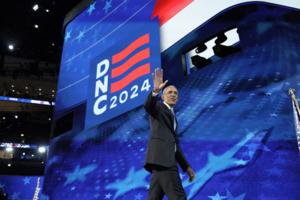
Commentary: If Donald Trump can run for a third term, so can Barack Obama
Since President Donald Trump returned to the White House in January, speculation has swirled that he would try for a third term in 2028.
He is not ruling it out, to the terror of his critics. On Monday, in an exchange with reporters during his Asia trip, Trump, referring to the third term idea, said, “I would love to do it. I have my best ...Read more
Trump orders nuclear weapons trials after Russia tests
President Donald Trump said the U.S. would match its rivals in testing nuclear weapons after Russia in recent days announced trials of a nuclear-powered underwater drone and nuclear-capable cruise missile.
“Because of other countries’ testing programs, I have instructed the Department of War to start testing our Nuclear Weapons on an equal ...Read more
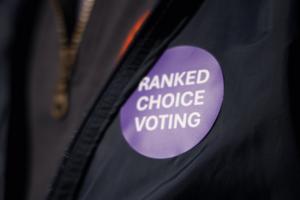
Commentary: Election reform turns down the temperature of our politics
Politics isn’t working for most Americans. Our government can’t keep the lights on. The cost of living continues to rise. Our nation is reeling from recent acts of political violence.
79% of voters say the U.S. is in a political crisis, and 64% say our political system is too divided to solve the nation’s problems.
There’s no silver ...Read more
Popular Stories
- As shutdown stretches on, Congress' efforts to pay federal employees stall
- Trump calls for Senate 'nuclear option' to end government shutdown
- Under Trump, ticket sales plummet for Kennedy Center performances
- Lawmakers spar over possible Trump third term as president leaves door open
- Commentary: Four votes on Tuesday that will shape the nation (or at least the narrative)






















































